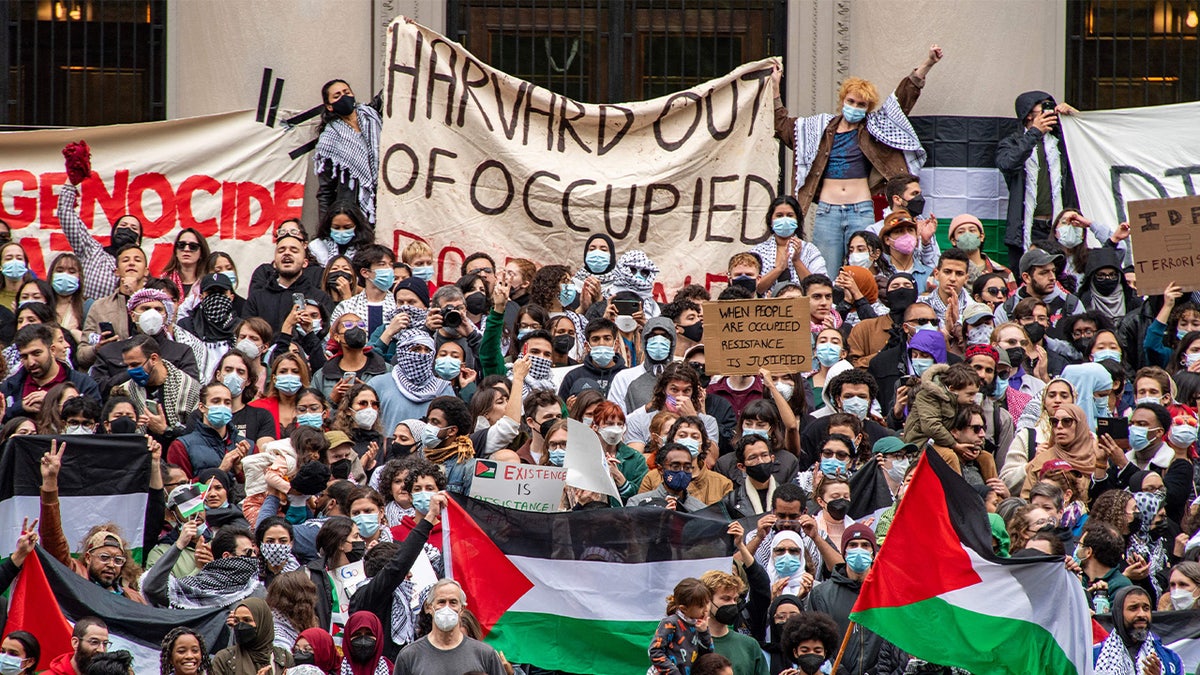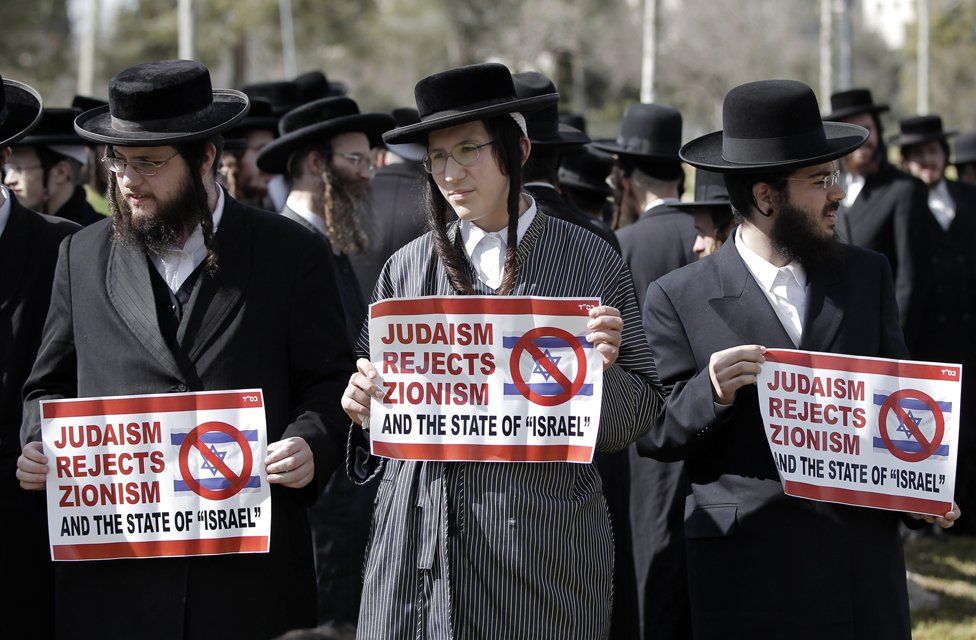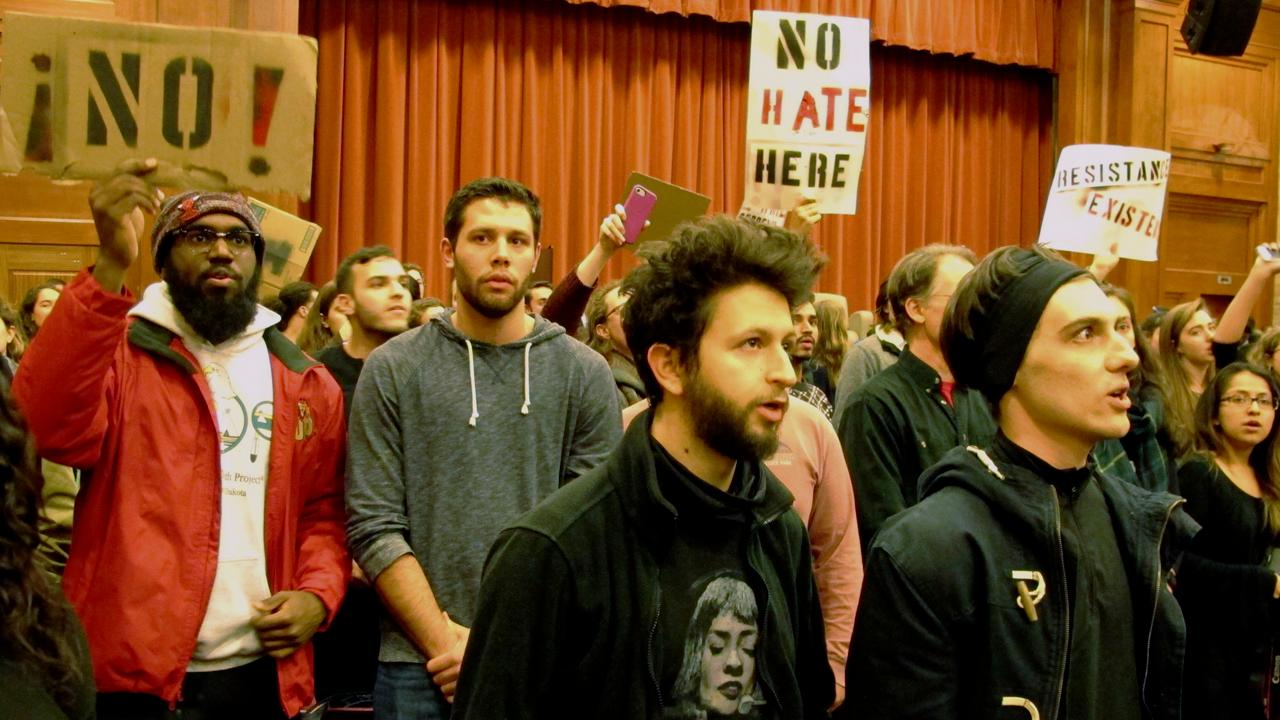
Dear Boomers: Student Protesters Are Not Idiots
Elizabeth Spiers / Opinion: New York Times
(May 17, 2024) — Appearing last week on “Morning Joe,” Hillary Clinton lamented what she views as the ignorance of students protesting the war in Gaza. The host, Joe Scarborough, asked her about “the sort of radicalism that has mainstream students getting propaganda, whether it’s from their professors or from the Chinese Communist government through TikTok.” Ms. Clinton was happy to oblige.
“I have had many conversations, as you have had, with a lot of young people over the last many months,” she said. “They don’t know very much at all about the history of the Middle East or frankly about history in many areas of the world, including in our own country.”
I’ve taught students at the college level for 12 years, most recently at New York University’s journalism school. I’ve also seen and heard the assumptions made about them by some of their elders — administrators, parents and others. So it’s no surprise now to hear protesters described as “spoiled and entitled kids” or delicate “snowflakes” who cower in their safe spaces and don’t believe in free speech.
Billionaires like Ken Griffin, Bill Ackman and, of course, Donald Trump — as entitled as anyone — have been particularly vocal in their disdain, calling the students in one instance “whiny” and demanding that they be punished for protesting.
Representative Mike Lawler, a Republican from New York, even suggested that TikTok should be banned in part because “you’re seeing how these kids are being manipulated by certain groups or entities or countries to foment hate on their behalf and really create a hostile environment here in the US.”
Whether they realize it or not, Ms. Clinton, Mr. Lawler and the rest are engaging in a moral panic about America’s youth that is part of a larger effort to discredit higher education in general. That effort includes fear-mongering about diversity programs and critical race theory. But it starts with students.

In the current panic, the protesters are described as somehow both terribly fragile and such a threat to public safety that they need to be confronted by police officers in riot gear. To justify the police department’s excessive response at Columbia University, Deputy Commissioner Kaz Daughtry showed Newsmax viewers a large chain and a book with the title “Terrorism” that had been recovered from one site of protest. The former was a common bike chain Columbia sells to students and the latter was part of Oxford University Press’s lovely “Very Short Introductions” series, which covers topics from animal behavior to Rousseau and black holes.
There are some obvious partisan factors at work here: Staunch support for Israel among Republicans, for instance, and the long-running right-wing insistence that elite universities are liberal indoctrination camps. But recent research reveals a significant generational divide as well.
A recent YouGov poll found that 45 percent of people ages 45 to 64 strongly opposed the protests, as did 56 percent of people 65 and older. By comparison, only 12 percent of 18-to-29-year-olds strongly opposed them, and 21 percent of people ages 30 to 44.
It’s not just about Gaza; similar age gaps emerged in response to protests after the murder of George Floyd, too. Eighty-seven percent of adults ages 18 to 34 supported the protests in June 2020, according to Gallup, while only 54 percent of adults 65 and older did. And just 3 percent of the older group had participated in the protests, while 26 percent of the younger group had.
We know from research that adults under 40 are more likely to participate in a protest than adults over 40, and generally prefer informal political participation more than their older cohorts, who are more likely to participate by voting. But that doesn’t fully explain the outright hostility some have leveled at campus protesters.
High-profile public figures of all ideological stripes have varyingly called for the students to be kicked out of their institutions, made unemployable or sent to prison. They’ve floated implausible scenarios in which the protests turn deadly. Students brave enough to risk their financial aid and scholarships are derided as childish rather than principled. And though they are educated to participate in civic life, as soon as these students exercise their First Amendment rights, they are told that protecting private property is a more pressing public concern.
It’s as though some older adults simply can’t wrap their heads around the idea that college students, who are old enough to marry, have families and risk their lives for their country, are capable of having well thought-out principles.
“They basically want students to shut up and study,” is how Robert Cohen, a scholar of 20th-century social protest, put it when I spoke to him this week. It doesn’t matter how virtuous the cause, he explained; older generations start with a bias against students. But protest is often the only way students have any voice at all in university matters. “People do not understand that university governance is fundamentally undemocratic,” Mr. Cohen said, noting that even students who have convinced universities to consider divestment have won, at best, the right to make their case to the board.

In my experience, the stereotypes about today’s students are often ludicrously far from reality. College students of this generation have far more knowledge about complex world events than mine or Ms. Clinton’s did, thanks to the availability of the internet and a 24/7 news cycle fire-hosed directly into their phones. Representative Lawler may be correct that some portion of that information comes from clips on TikTok, and social media can be misleading, but there’s no evidence that college students are more likely to be misled by TikTok than people Mr. Lawler’s age and older are likely to be misled by Facebook.
In fact, research indicates that younger people are more savvy and skeptical about media, and more likely to triangulate among different sources to see if something is true.
They may also be more sensitive to the horrors of children being killed here and elsewhere because they grew up participating in active shooter drills and watching the aftermath of mass shootings on the news. They are less financially secure than generations prior, and less likely to believe that institutions will save them or reward them for loyalty and hard work.
But they are not babies, and they are not oblivious or naïve. And their ideas and actions cannot be dismissed just because some bad actor — no mass movement is without them — does or says something stupid.

I’m somewhat sympathetic to those who find protests uncomfortable. They’re always disruptive, as they’re supposed to be. And big loud crowds make me nervous now in a way that they didn’t when I was 22 and a big loud crowd was fun and meant I was at a club with oontz-oontz-oontz music and 73 of my closest friends.
I now prefer political participation that is less hard on the knees. But I am exhilarated to see students using protest for exactly the reasons it’s protected by the First Amendment. It allows them to stand up for their values, invest in what’s happening in the world and hold decision makers accountable, even if it means putting themselves at risk. And most compellingly, it’s getting the attention of the president and other lawmakers who can effect change far beyond the walls of any university campus.
Ms. Spiers, a contributing Opinion writer, is a journalist and a digital media strategist.
Posted in accordance with Title 17, Section 107, US Code, for noncommercial, educational purposes.
